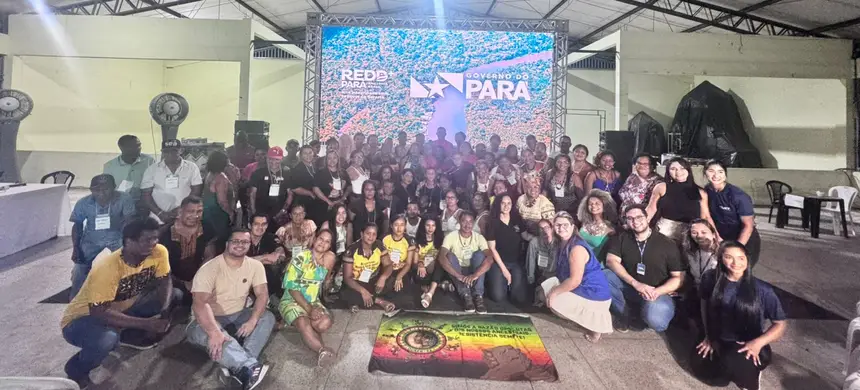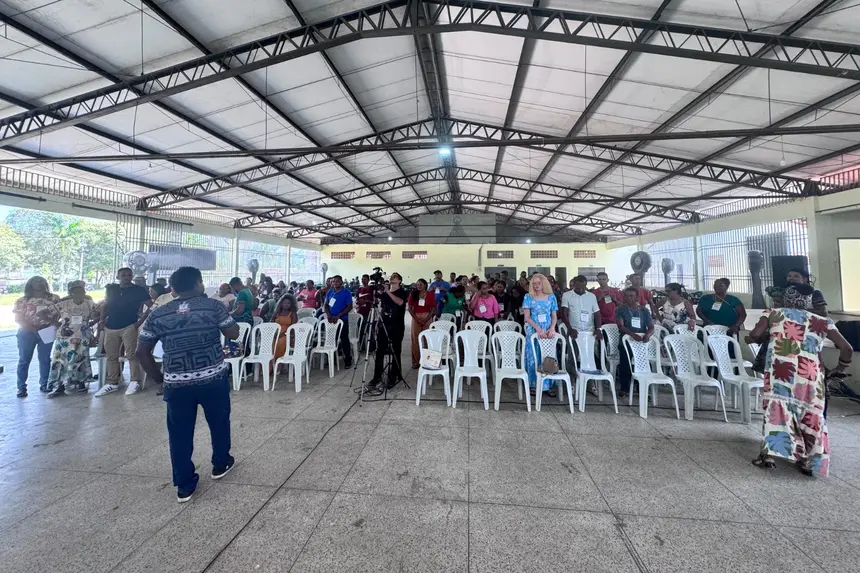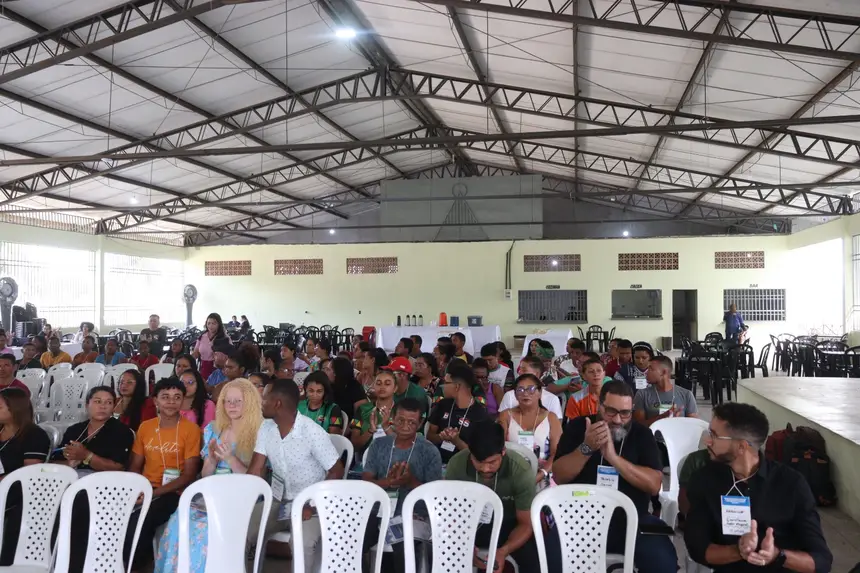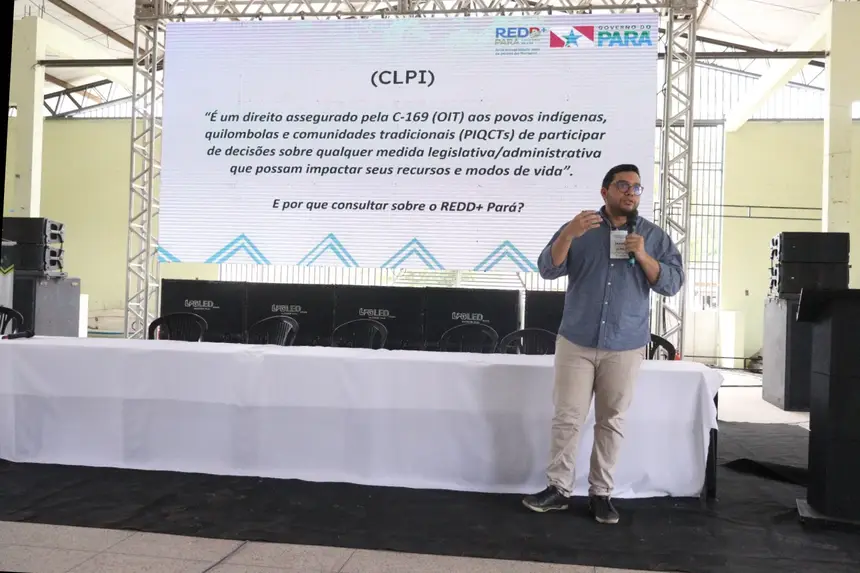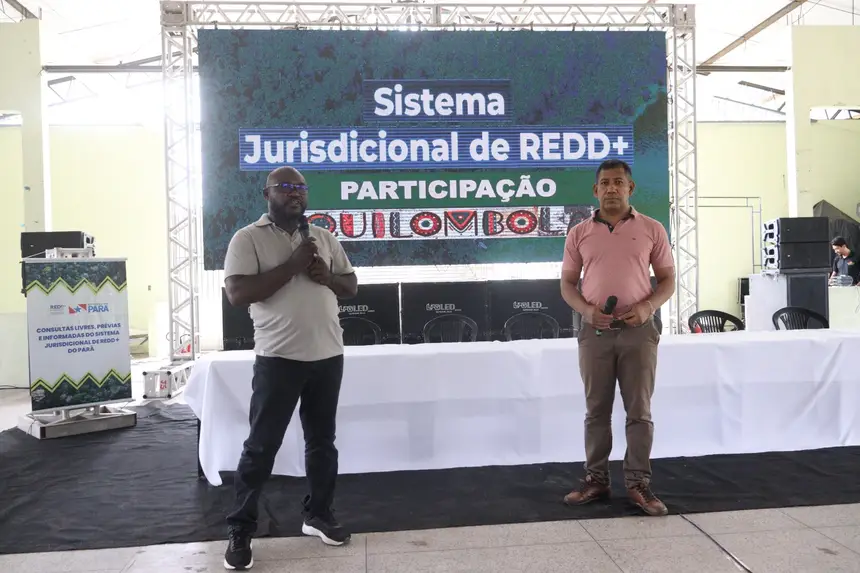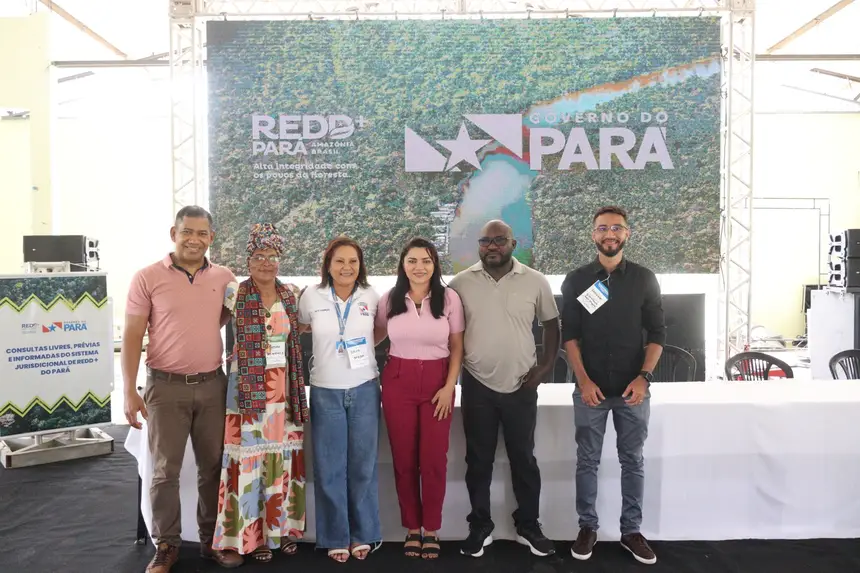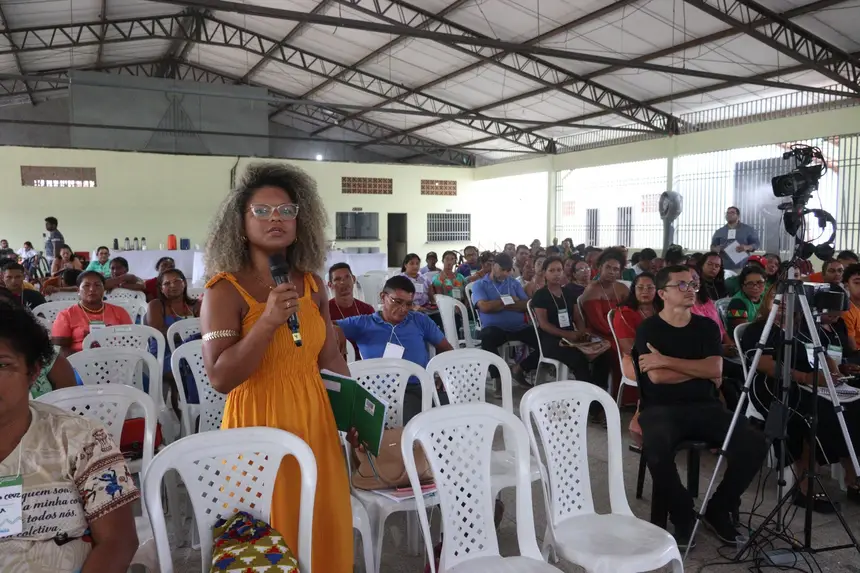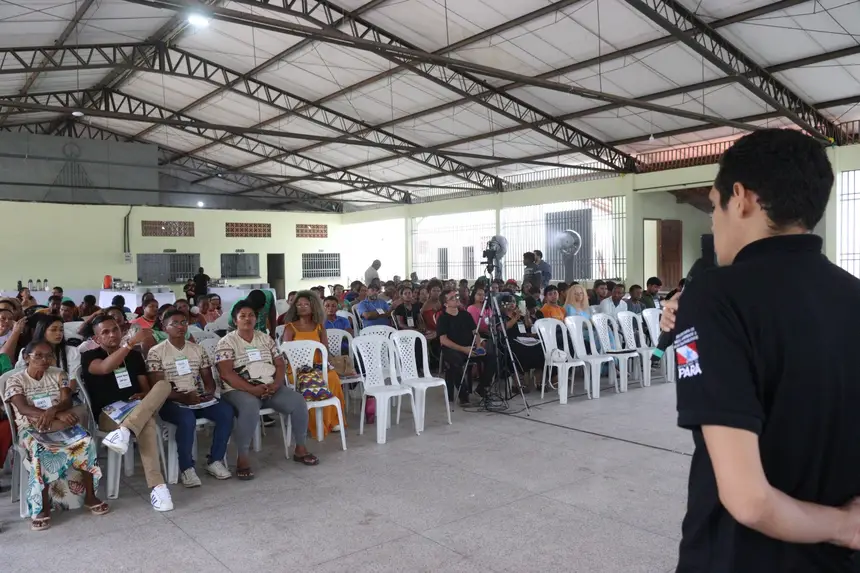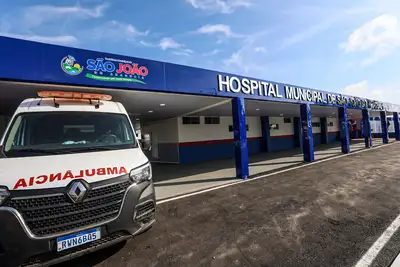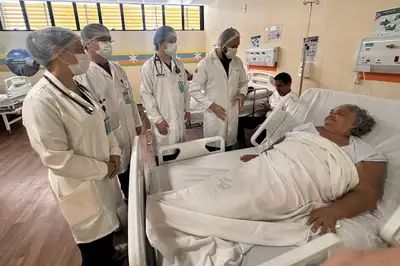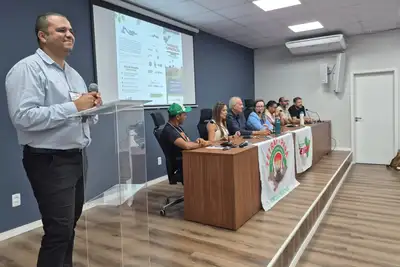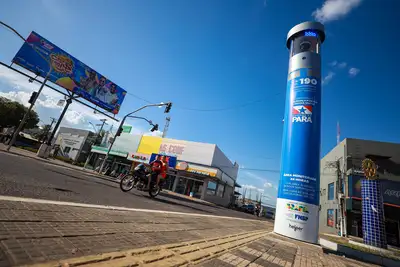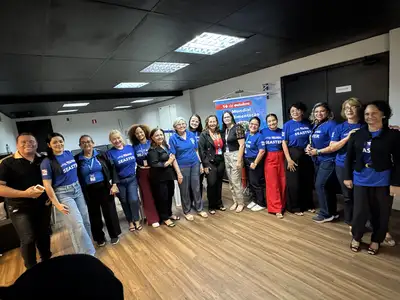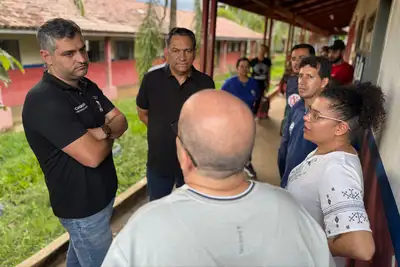Pará consults the quilombola communities of the northeastern state about SISJREDD+
Event about the REDD+ Jurisdictional System in São Miguel do Guamá reinforces the largest listening process ever conducted with traditional peoples and communities
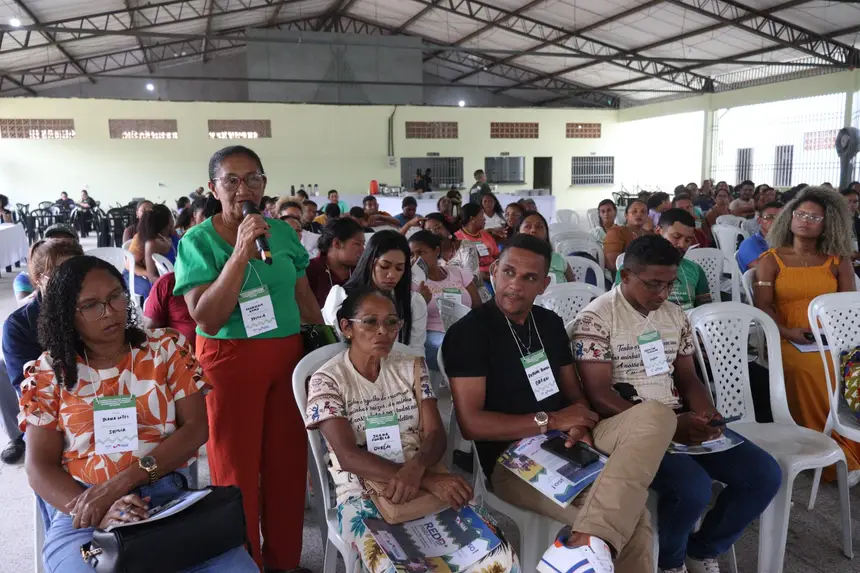
The State Secretariat for Environment, Climate and Sustainability (Semas) is holding, from August 5 to 8, in São Miguel do Guamá, the Free, Prior and Informed Consultation (CLPI) with the quilombola communities of the Northeast Paraense region. The meeting is part of the participatory construction process of the State's REDD+ Jurisdictional System (SJREDD+), aligned with the State Policy on Climate Change (PEMC) and the State Plan Amazon Now (PEAA).
In addition to Semas, the opening table included the participation of the Secretariat of Racial Equality and Human Rights (Seirdh); Malungu – State Coordination of the Associations of the Remaining Quilombo Communities of Pará; and the municipal secretariat of Environment of São Miguel do Guamá.
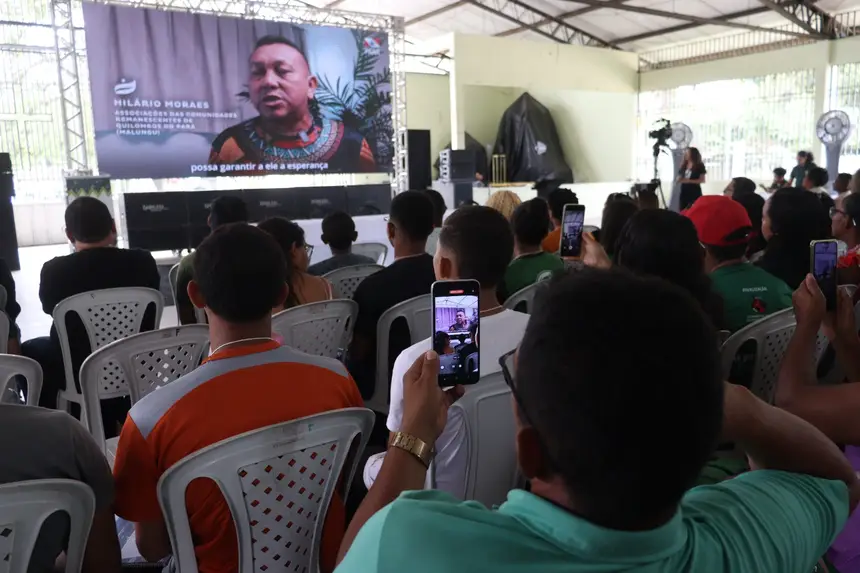
During these four days, quilombola leaders participate in informative and consultative panels, dynamics, and debates aimed at the collective construction of the SJREDD+. Topics such as social and environmental safeguards, emission measurement, benefit sharing, access mechanisms to resources, and the draft law that establishes the system are addressed.
The Deputy Secretary of Water and Climate Management of Semas, Renata Nobre, highlights the importance of the process: “the consultation with quilombola communities is a decisive step to consolidate a REDD+ system that is legitimate, inclusive, and aligned with climate justice. Pará recognizes the historical role of these territories in forest preservation and works to ensure that their participation (of the communities) is effective at all stages of the process.”
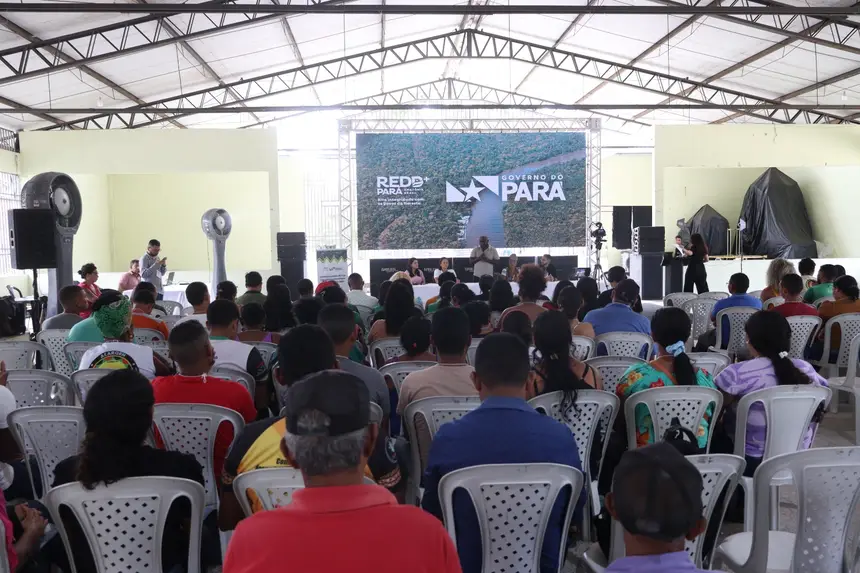
Francisca Oliveira da Silva Gama, a resident of the quilombo São José do Açaiteua, in Irituia, highlighted the importance of community involvement. “I participate in the prior consultation of REDD+ Pará in search of more knowledge about environmental preservation and our ecosystem. Although this policy is new, for us, we already experience these practices in our daily lives, as guardians of trees, medicinal plants, springs, and waters. We fight against deforestation and for the defense of our territory. Our greatest concern is to ensure the protection of the quilombo, biodiversity, and the entire ecosystem that sustains us,” she stated.
Representing the quilombola communities, the regional coordinator of Malungu, Sebastiana do Socorro, emphasized the relevance of the moment: “It is a great joy to participate in another CLPI on jurisdictional REDD+, a public policy that strengthens quilombolas in forest preservation and in valuing our territory. I thank the State Government for recognizing the importance of our communities in this process, which brings life, sustainability, and hope to our families.”
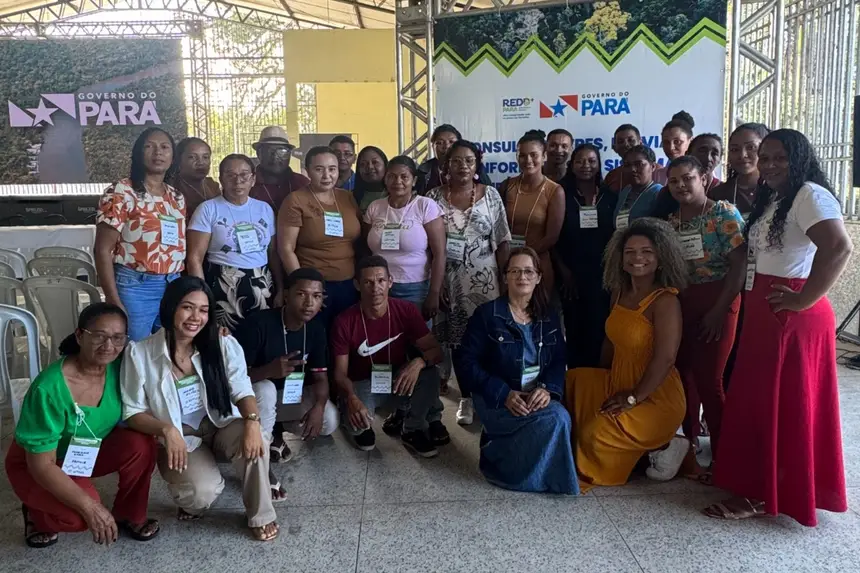
The program also includes moments of internal evaluation by the consulted leaders and a general meeting, which represents an essential step for the validation of the process.
The initiative promoted by the Government of Pará aims to ensure the right to effective participation of traditional peoples and communities in the formulation of environmental public policies, respecting the right to consultation and free, prior, and informed consent, in accordance with the principles of ILO Convention 169 (International Labour Organization), a specialized agency of the United Nations (UN) that promotes social justice and internationally recognized human and labor rights.
Pará is a pioneer in building a jurisdictional REDD+ system in Brazil, to promote the reduction of pollutant emissions resulting from deforestation, with social inclusion, legal security, and appreciation of traditional knowledge and forest peoples.



